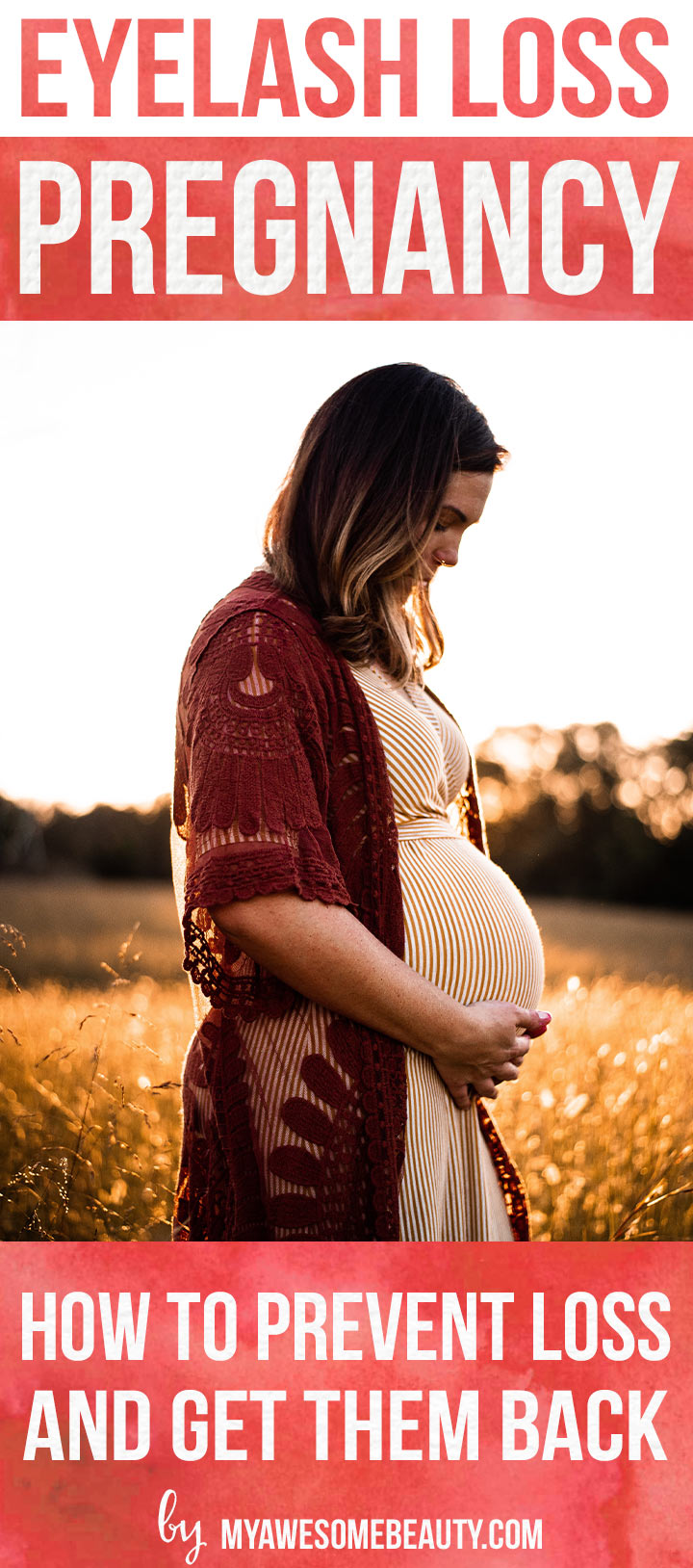
Suffering from eyelash loss during pregnancy?
As if things weren’t bad enough for pregnant Sarah, now her eyelashes are starting to fall out.
She’s constantly worried that she’ll lose them all and end up looking like a sad raccoon.
But when she starts getting offers from strangers to buy her used eyelashes, Sarah realizes that maybe this is a blessing in disguise.
She starts a new business selling her used eyelashes online and makes a fortune!
If you’re like Sarah, eyelash loss during pregnancy could be a blessing in disguise.
But if you’re like the rest of us, you’d rather keep your lashes, thank you very much.
Read on to find out about eyelash loss in pregnancy.

Pregnancy can be a wonderful or difficult experience.
For some women, pregnancy is easy and they feel great the entire time. They have few if any pregnancy symptoms and they’re able to enjoy their pregnancy.
Other women find pregnancy to be more difficult.
They may have morning sickness, fatigue, back pain, and other pregnancy symptoms.
They may also find it hard to adjust to the physical changes that happen during pregnancy.
Pregnancy can be amazing, even though it comes with some odd side effects no one tells you about.
For example, did you know that you can lose eyelashes during pregnancy?
It’s true!
Fortunately, they usually grow back after you give birth.
Another weird pregnancy symptom is called “pregnancy brain.” This is when you start to forget things or have trouble focusing. Some people joke that pregnancy is like having a permanent case of jet lag.
But despite the challenges, pregnancy is an amazing time.
You get to watch your body change and grow and feel a new life moving inside of you. And whether it’s easy or difficult, it’s always worth it in the end.
Why Eyelash Loss Can Occur During Pregnancy

Every woman wants to look her best during pregnancy, but some may be surprised to find that their eyelashes are thinning out.
While this may be cause for alarm, it’s quite common and is usually nothing to worry about.
Here are the most common reasons for eyelash loss during pregnancy.
Thyroid Problems
The main culprit of eyelash loss is the thyroid.
The thyroid is a gland – almost butterfly-shaped – located in the lower front of the neck. The thyroid’s main job is to make thyroid hormone. This hormone helps the body use energy, keep warm, and keep the brain, heart, muscles, and other organs working as they should.
- Hyperthyroidism (overactive thyroid) occurs when the thyroid gland makes too much thyroid hormone. This can cause eyelash loss.
- Hypothyroidism (underactive thyroid) is the opposite – the thyroid isn’t making enough thyroid hormone. This can also cause eyelash loss. ( really not fair!!)
The American Thyroid Association advises that during pregnancy the hormone oestrogen increases, which can lead to hyperthyroidism.
In addition, the hormone hCG (human chorionic gonadotropin) also increases during pregnancy, and this can also lead to hyperthyroidism.
So, if you’re noticing eyelash loss during pregnancy, it’s important to talk to your doctor about whether or not you may have a thyroid condition.
Mineral or Nutrient Deficiency
Eyelash loss can be caused by nutrient or mineral deficiency, which is common during pregnancy.
Some of the nutrients or minerals that can lead to eyelash loss are iron, folic acid, zinc, and magnesium.
You usually need extra nutrients and minerals during pregnancy, especially iron, folic acid, and calcium.
Eyelash loss caused by nutrient or mineral deficiency is usually reversible with supplementation. This supplement here is one of the most popular for pregnancy.
One of the most common causes of eyelash loss during pregnancy is an iron deficiency. This is because during pregnancy, the body’s demand for iron increases.
To get enough iron, you need to eat foods that are rich in iron such as red meat, dark leafy greens, beans, and nuts. You may also need to take a supplement.
Another common deficiency during pregnancy is folic acid.
Folic acid helps to prevent birth defects of the brain and spine. Often, women are advised to take a supplement before they become pregnant. However, you can also get folic acid from food sources such as leafy greens, legumes, and fortified cereals.
If you are pregnant and think you may have a nutrient or mineral deficiency, talk to your doctor. They can order tests to check your levels and make sure you are getting the nutrients you need. Check with your doctor before taking any supplements.
Pregnancy-Related Stress
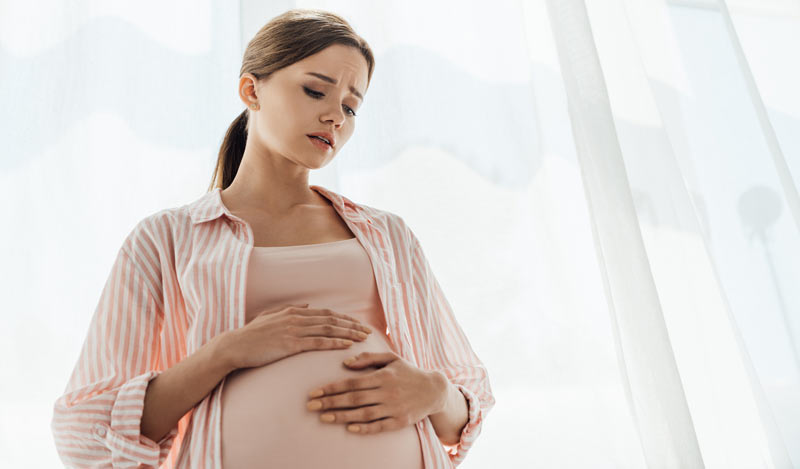
During pregnancy, it’s not uncommon for women to experience increased levels of stress.
And while a certain amount of stress is normal, excessive stress can lead to several problems, including eyelash loss.
This condition, known as telogen effluvium, occurs when hair follicles are pushed into a resting state ( eyelash growth cycle ), causing the eyelashes to fall out.
While the exact cause of telogen effluvium is unknown, it’s thought that pregnancy-related hormones may play a role.
Fortunately, eyelash loss due to telogen effluvium is usually temporary and the eyelashes will grow back once the hormone levels return to normal.
So to deal with stress, try some relaxation music ( benefits of music) , meditation, reading, etc….anything that works for you to decrease your stress level.
However, if you’re experiencing significant stress during pregnancy that you cannot handle, it’s important to talk to your doctor about ways to manage it.
Specific Behaviours
Anyone who has ever gone through a bad breakup knows that eyelash loss is a real thing.
While it’s usually just a temporary shedding of a few extra eyelashes, in some cases, it can be more severe and even lead to permanent eyelash loss.
One of the most common causes of eyelash loss is trichotillomania, which is a condition that leads people to compulsively pull out their eyelashes.
While the exact cause of trichotillomania is unknown, it is thought to be related to anxiety or stress.
Interestingly, pregnancy can also lead to increased rates of trichotillomania, as the condition is thought to be triggered by changes in hormones.
So, if you’re pregnant and notice that you’re starting to pull out your eyelashes more, it’s important to talk to your doctor about ways to manage the condition.
Heading Towards Recovery
So, if you’re pregnant and thinking, “Umm… my eyelashes are falling out.
Is this normal?” don’t worry, you’re not going crazy.
You know now that pregnancy eyelash loss is normal. It’s one of the many strange things that can happen to your body during pregnancy.
Fortunately, pregnancy eyelash loss is usually temporary and your eyelashes will typically grow back after you give birth.
So, if you’re missing your long eyelashes, just be patient and they’ll eventually come back.
Eyelash growth typically returns to normal within a few months after giving birth, or by your child’s first birthday at the latest.
In the meantime, there are plenty of great mascaras on the market that can help you fake it ’til you make it, or you can try using an eyelash growth serum or wearing false eyelashes to help make up for the loss.
Simple Tips To Reduce Eyelash Loss During Pregnancy And Encourage Regrowth After Birth
We all know the feeling of waking up and seeing an eyelash or two on our pillow.
And, while it may not seem like a big deal, eyelash loss can be extremely frustrating.
Luckily, there are a few things you can do to help reduce eyelash loss.
- First, make sure you’re eating the right foods. Foods like salmon, sweet potatoes, and spinach are all great for keeping your eyelashes healthy.
- Second, take supplements. Biotin and folic acid are both great for hair growth.
- Third, use natural oils. Coconut oil, olive oil, and castor oil are all great for eyelashes.
- Fourth, use a eyelash growth serum. There are a ton of great options out there, but make sure you read the reviews before purchasing one.
- Fifth, make careful makeup choices. Be sure to remove your makeup before going to bed and avoid using waterproof mascara.
- Sixth, and most importantly, reduce your stress levels. Stress can be a big contributor to hair loss, so try to find ways to relax and de-stress.
While you may not be able to completely prevent eyelash loss, following these tips should help reduce the number of eyelashes you lose each day.
Let’s take a look at these six tips in more detail.
Eat The Right Foods

As any pregnant woman knows, there are a lot of things to think about when it comes to nutrition.
What you eat can have a big impact on your health and the health of your baby.
So, it’s no surprise that pregnant women are always looking for foods that will give them an extra nutritional boost – and help prevent eyelash loss.
First, make sure you’re getting enough nutrients such as vitamins A and C, B12, beta-carotene, biotin, iron, protein, and essential fatty acids. These nutrients are important for both your health and the health of your eyelashes.
You can get them from foods such as leafy green vegetables, fish, eggs, whole grains, beans, nuts, and seeds.
You can also take supplements if needed such as this one that we like here ( from Amazon).
Eating nutrient-rich foods during pregnancy is important for both you and your baby while being essential to reducing eyelash loss.
Salmon
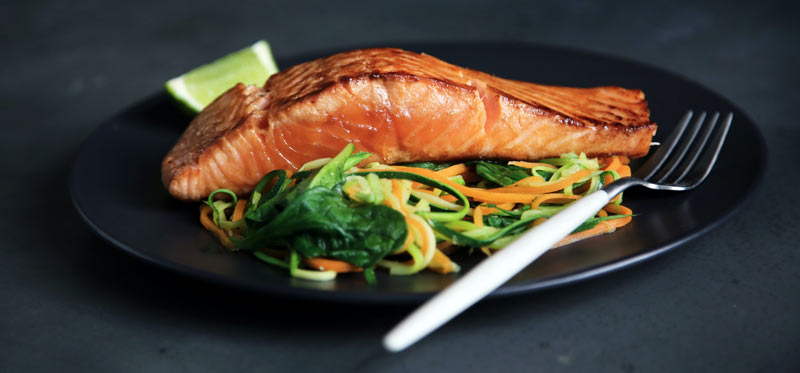
Salmon is a great option for pregnant women.
It is packed with nutrients that are essential for a healthy pregnancy, including omega-3 fatty acids, protein, and Vitamin D.
Omega-3 fatty acids help to support foetal brain development, and protein and Vitamin D are important for the growth and development of bones and teeth.
In addition, salmon may help to prevent eyelash loss.
While the jury is still out on exactly why this is, some experts believe that the omega-3 fatty acids in salmon help to protect the hair follicles from damage.
So, if you’re pregnant and worried about your eyelashes, make sure to add some salmon to your diet. Just be sure to talk to your doctor first about any limits on how much fish you should be eating during pregnancy.
Sweet Potatoes

An excellent option for pregnant women, sweet potatoes are packed with nutrients like vitamins A, C, and E, which are important for foetal development.
They also contain iron and potassium, which can help to prevent eyelash loss during pregnancy.
And best of all, they’re delicious!
So, if you’re looking for food that will help you get all the nutrients you need during pregnancy, add sweet potatoes to your diet.
Egg
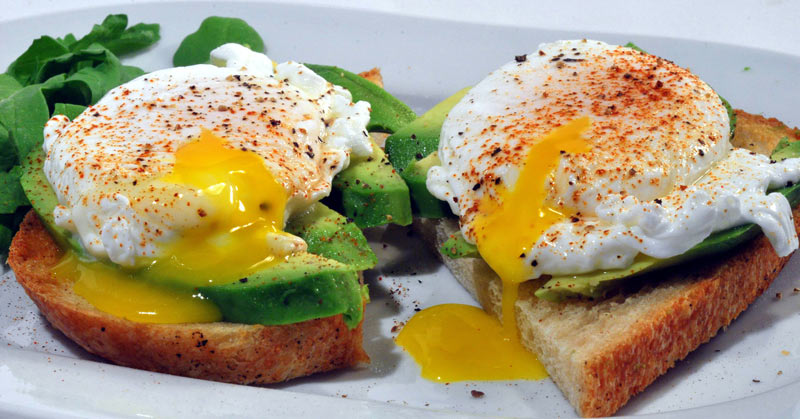
Ah, the age-old question: to eat eggs or not to eat eggs when pregnant?
Some say it’s a no-brainer – after all, they’re a nutrient-rich food that can help prevent eyelash loss (a very real and tragic side-effect of pregnancy).
Others are warier, thinking that the cholesterol in eggs is a ticking time bomb.
So, what’s the verdict?
Well, it turns out that both sides have a point.
Eggs are high in cholesterol, but they also contain nutrients like choline and lutein which are essential for pregnant women.
In terms of eyelash loss, there isn’t definitive evidence that eggs can help prevent it, but given their nutrient content, they’re certainly worth including in your diet.
As for limits, most experts recommend eating no more than 12 eggs per week during pregnancy. So, crack ’em open and enjoy!
Dark Leafy Greens
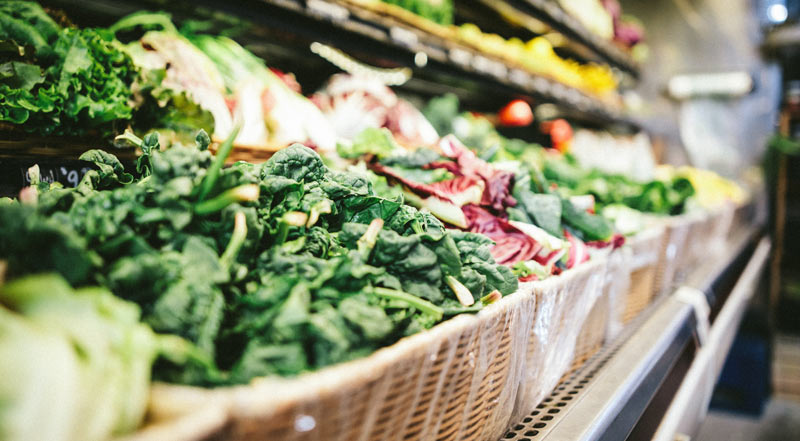
As any expectant mother knows, there are a lot of things to worry about during pregnancy.
Will the baby be healthy? Will I be able to handle labour? And, perhaps most importantly, will I lose my eyelashes?
OK, maybe that last one isn’t a huge concern for most pregnant women.
But it turns out that dark leafy greens can help prevent eyelash loss. These greens are packed with nutrients like iron and folate, which are essential for a healthy pregnancy. They also contain vitamins A, C, and E, which help keep skin and hair healthy.
So, eating dark leafy greens can help you maintain your eyelashes during pregnancy.
Of course, you should always talk to your doctor before making any major changes to your diet during pregnancy.
But adding some dark leafy greens to your meals is a great way to get the nutrients you need while helping to prevent eyelash loss.
Lean Meats
Pregnant women have a lot to think about – what to eat, what not to eat, how much to exercise, and whether or not they’re going to lose their eyelashes.
While there’s no clear-cut answer on the eyelash front, there are some good reasons why pregnant women should eat lean meat.
Lean meat is an excellent source of protein, iron, and other essential nutrients.
During pregnancy, these nutrients are especially important in supporting the growth and development of the baby.
Additionally, lean meat can help prevent anaemia and fatigue, both of which are common during pregnancy.
Not to mention, it can also help to keep those precious eyelashes from falling out.
So, if you’re pregnant and wondering what to eat, lean meat is a great option. Just be sure to limit your intake of fatty meats, as they can increase your risk of developing gestational diabetes.
Other Foods
While there are many old wives’ tales about what pregnant women should and shouldn’t eat, there is some scientific evidence to support the idea that certain foods can help prevent eyelash loss.
Avocados, milk, bananas, and whole grains are all rich in nutrients like biotin and zinc, which are essential for healthy hair growth.
Eyelash loss can be a problem during pregnancy, due to hormonal changes and increased stress levels.
However, by including these foods in your diet, you can help ensure that your eyelashes stay strong and healthy throughout your pregnancy.
So go ahead and enjoy that avocado toast – your eyelashes will thank you for it!
Take Supplements
Unexpected changes like eyelash loss may seem like a minor issue, but it can be quite distressing.
Fortunately, biotin supplements may also help to prevent eyelash loss during pregnancy. Our diet is not always the healthiest for various reasons…. so taking supplemets can really help bring essential nutrients.
Biotin is one of them, it is a water-soluble vitamin that helps to support the health of the skin, nails, and hair. It’s also an important nutrient for pregnant women, as it helps to support foetal development.
This supplement is probably the most interesting one for eyelashes, provided you eat enough fruits and vegetables to get the other nutrients.( seen below)
Among the multiple versions, we like this one here which is safe and cost effective.
To sum up,
- if you think your diet is pretty healthy and diverse, just stick with the biotin supplement.
- if your diet is far from being healthy, this one here could be a better supplement as it has several nutrients in one go.
The Linus Pauling Institute states that the recommended dose of biotin for pregnant women is 30 to 35 micrograms per day.
Of course, check with your doctor first to see what could suit you best depending on your case.
Use Natural Oils

Eyelash loss is a common problem during pregnancy, but it can be also prevented with the use of natural oils like castor oil, emu oil, and coconut oil.
These oils are packed with nutrients that help to nourish and strengthen eyelashes, making them less likely to fall out.
In addition to preventing eyelash loss, these oils also have other benefits like helping to reduce stretch marks and keeping skin hydrated.
Castor Oil
Castor oil has been shown to help prevent eyelash loss, and it can also help to promote hair growth.
It is hands down the most interesting oil. If you should only pick one, this is the oil to pick for eyelashes.
In addition, castor oil contains several other benefits that are important during pregnancy, including helping to reduce stretch marks and promoting healing.
Castor oil is readily available at most health food stores, and it can be used topically. Our favorite brand for castor oil is here. It is cost effective and good quality.
For best results, expectant mothers should use castor oil regularly throughout their pregnancy.
Emu Oil
Pregnant women have enough to worry about without worrying about losing their eyelashes. Luckily, emu oil can help. This natural product helps to prevent eyelash loss and is packed with other nutrients that are important for pregnancy.
Emu oil is rich in omega-3 fatty acids, which are essential for the development of the brain and nervous system. It also contains vitamins A and E, which help to support the immune system. In addition, emu oil is non-comedogenic, meaning it won’t clog pores and cause breakouts.
This is important for pregnant women, who are often more susceptible to acne.
I don’t use this oil as I prefer to stick with vegan products as much as possible. I also find it less effective. Some report good results. So, if you want to give it a try, make sure to pick a pure product.
The one we heard about is this one but we did not test it.
So, if you’re looking for a natural way to keep your eyelashes healthy and your skin clear during pregnancy, look no further than emu oil.
Coconut Oil
Coconut oil can help to alleviate pregnancy-related skin issues like stretch marks and dryness. It’s an excellent moisturizer and can also help to prevent eyelash loss.
Coconut oil can also help to keep your eyelashes healthy and prevent them from falling out.
I personally find castor oil much more interesting for eyelashes. But I love coconut oil for skin and hair care 😉
The coconut oil brand I currently use is this one from my favorite shop amazon)
It contains several other nutrients that are beneficial for pregnant women. These include vitamin E, which helps to protect the skin, and lauric acid, which has antiseptic properties.
Coconut oil is an excellent way to keep your skin healthy during pregnancy, and it can also help to prevent eyelash loss.
Use An Eyelash Growth Serum
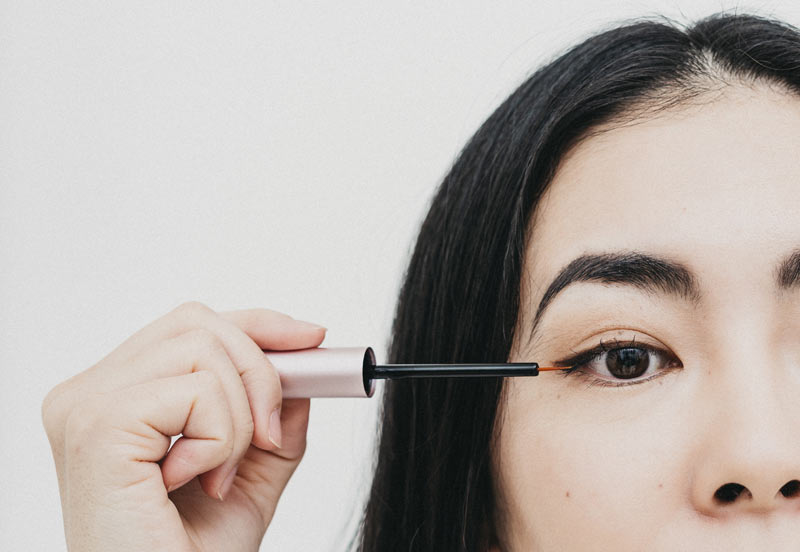
While pregnancy-related eyelash loss is usually temporary, it can be distressing for many women. Fortunately, there are eyelash growth serums that can help to combat eyelash loss. However, there are some risks associated with these products.
The main ingredient in most eyelash growth serums is bimatoprost, also known as Latisse, which is a prostaglandin analog.
This ingredient has been linked to increased intraocular pressure, which can be dangerous for pregnant women.
In addition, the Food and Drug Administration has not approved any eyelash growth serums for use during pregnancy.
For these reasons, pregnant women need to speak to their doctor before using any eyelash growth products. Breastfeeding women should also avoid using these products, as the bimatoprost can be passed into breast milk.
Luckily, there are eyelash conditioners available that can help to mitigate the problem. Natural eyelash conditioners are a safe alternative for both pregnant and breastfeeding women.
These products typically contain ingredients like aloe vera and glycerin, which can help to nourish and condition eyelashes, while other common ingredients like botanical extracts, proteins, and peptides are all safe for pregnant women.
These eyelash conditioners can help promote eyelash growth and prevent further loss.
The eyelash serum we reallly love is this one that we tested. It is certainly not as famous as Latisse but it is way cheaper and effective too 🙂
Make Careful Makeup Choices
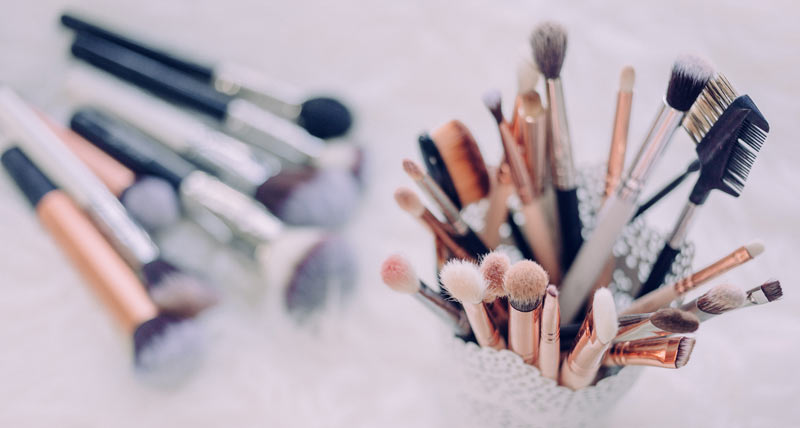
Many women enjoy experimenting with makeup and trying out new products and looks.
- However, there are some special considerations to keep in mind when it comes to pregnant women and makeup.
- First of all, it’s important to be aware of the dangers of expired makeup. Not only can expired makeup cause skin irritation, it can also lead to eyelash loss.
- Additionally, pregnant women should be careful to avoid using any makeup that contains mercury. This element can be harmful to both the mother and the developing baby.
- Finally, pregnant women should take care to avoid handling any cosmetics that have been used by someone else. This is because there is a risk of bacteria and other contaminants being passed from one person to another.
With these precautions in mind, pregnant women can enjoy experimenting with makeup without putting their health at risk.
They should also avoid fake eyelashes and eyelash extensions during pregnancy.
The main concern is that the weight of the eyelashes can cause them to fall out, which can be a problem during pregnancy because of the increased hormones.
In addition, the glues and adhesives used to attach fake eyelashes and eyelash extensions can contain “harmful” chemicals.
So, if you’re pregnant and thinking about getting eyelash extensions, you might want to think again.
Reduce Your Stress

Pregnancy is a time of great change for a woman’s body, and it can be a stressful time as well.
However, pregnant women should avoid stress as much as possible, as it can lead to dangerous complications.
One of the most common dangers of stress during pregnancy is eyelash loss.
When a woman is stressed, her body produces the hormone cortisol, which can cause eyelashes to fall out. In addition, stress can also lead to preterm labour and low birth weight.
Women can de-stress by getting plenty of rest, eating a healthy diet, and exercising regularly.
By taking care of themselves, pregnant women can help ensure a healthy pregnancy.
Conclusion
Pregnancy is a time of many changes, both mental and physical.
For some women, one of the most unexpected changes is eyelash loss.
While it’s not exactly a life-threatening condition, it can be quite alarming to wake up one day and find that your eyelashes are falling out in clumps.
As if dealing with pregnancy symptoms wasn’t enough, eyelash loss can be a real downer. Not only might it make you look less attractive, but it can also cause your eyelids to feel heavier and your eyes to feel dry.
The good news is that eyelash loss is usually temporary and will grow back once the baby is born.
In the meantime, you can try using mascara or false eyelashes to help give your lashes some extra volume. And if all else fails, just remember that you’re not alone – millions of other women have gone through the same thing.
Finally, don’t forget to tell your friends and family about your eyelash loss so they can offer moral support. After all, laughter is the best medicine – even when you’re losing your eyelashes!
Leave a Reply